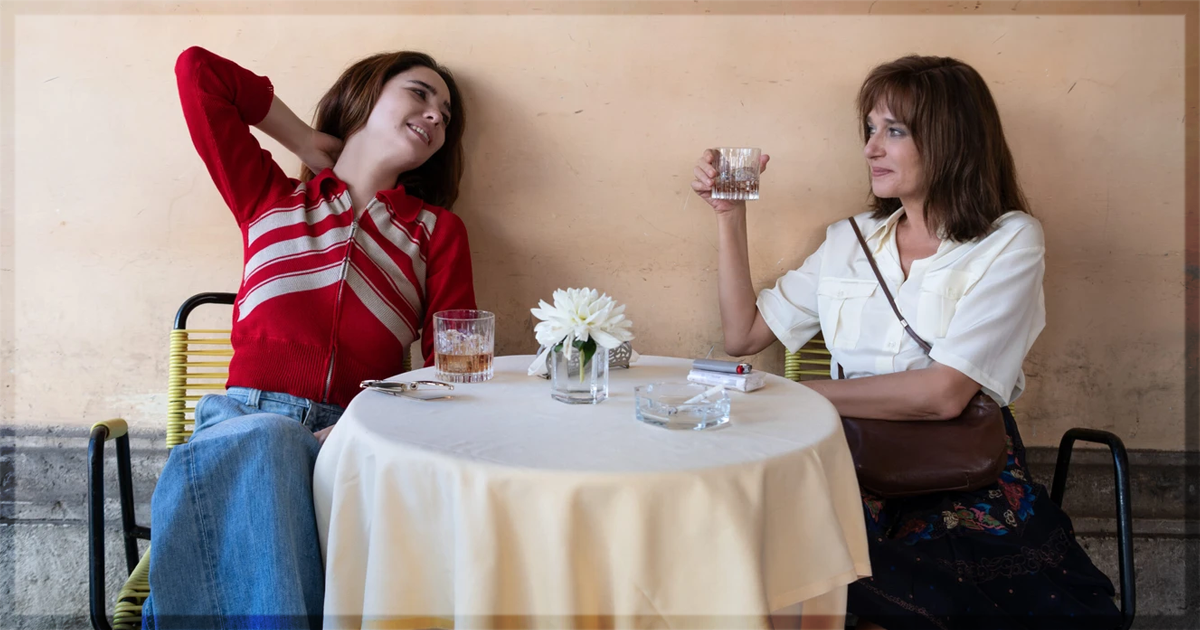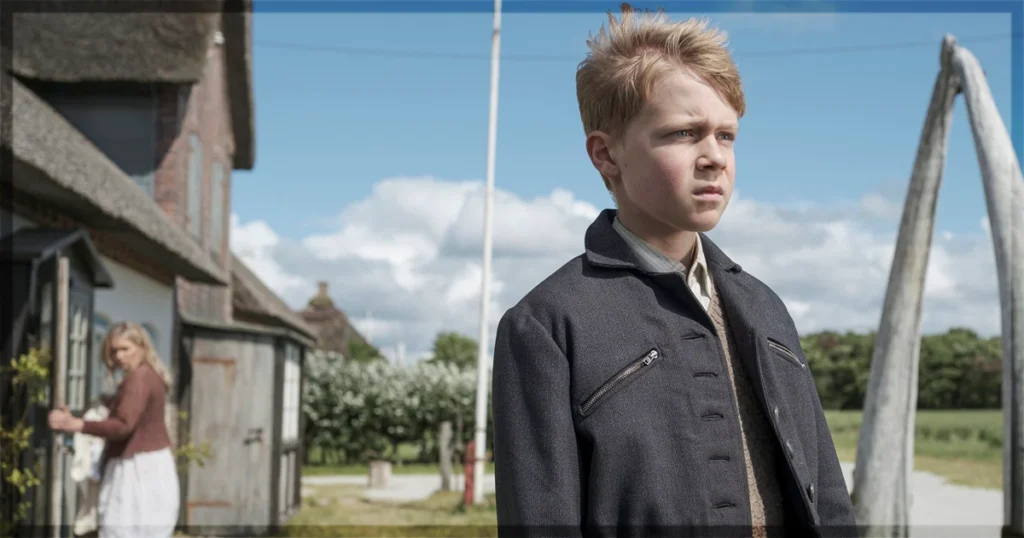In the USA, the Italian actress Valeria Golino is mainly famous for two very different roles: as Tom Cruise’s sexy girlfriend in the incredibly serious Rain Man from 1988, and then as Charlie Sheen’s sexy love interest in the incredibly silly Hot Shots! movies in 1991 and 1993. Ms. Golino returned to Europe in the early noughties and has worked consistently in the subsequent decades, including twice as a director. But her work here is as different from those American blockbusters as it’s possible to imagine, playing a real-life Italian intellectual whose life was knocked upside down by a brief stay in prison in the early 1980s. Goliarda Sapienza, who had an absolutely fascinating life, is largely now remembered as the posthumous author of The Art of Joy, which no one would publish in Italy during her lifetime and was a smash hit in France when it was finally published there in 2005. But Fuori chooses to focus on Goliarda’s attempts to reintegrate into society after her prison sentence, not helped by her surprising friendships with some of the women she met inside. It’s a slight story, but so unusual a depiction of female friendship that it’s well worth seeing.
Goliarda is a minor celebrity as a left-wing intellectual when she enters prison, meaning she must constantly explain that she is not ‘political’ and is instead in for theft. The opening sequences show Ms. Golino in the nude as she is processed into prison life, and then immediately drop her in with her fellow prisoners, most notably Roberta (Matilda De Angelis), an impulsive addict with a gift for causing mayhem, and Barbara (Elodie), a drug smuggler desperate to go straight despite being in thrall to a very bad man. Goliarda has spent her life in the intelligentsia and reacts to prison with a combination of anthropological fascination and personal astonishment. All the righteous ideals to which she has devoted her life are nothing but hot air to her new peers. Upon release she and Roberta start hanging out, mainly because she is a new audience for all of Roberta’s stories.
And does Roberta ever have stories. She’s the kind of woman who never worries about taxis because she simply hotwires a car and drives it to wherever she needs to go. It’s made clear she is a member of a criminal family – probably not mafia, though it’s hard to tell – although she has fallen out with them over the preferential treatment of a brother. She also has her own extensive network of shady contacts around Rome, and spends her time running various shady errands on which Goliarda eagerly tags along. Ms. De Angelis does very interesting work as a woman re-evaluating her choices thanks to a new friendship, and finding herself torn between doubling down on old habits and the enormous relief of unburdening herself to someone whose life has gone in a different direction.
There’s also an extended and frankly delightful scene where Barbara invites Goliarda and Roberta to admire her new business: a high-end perfume shop in a neighbourhood where luxury boutiques are unusual. Barbara also has a little apartment attached at the back, so of course her friends all have a shower together before they sit down to a dinner supplied from the local deli. Goliarda realises in voiceover they are re-enacting their time in prison, but realises in the moment that neither of her friends are as clear from their criminal ways as they’d allowed her to believe. But compared to them Goliarda is an innocent, and the small molehills of shady knowledge Roberta doles out are meant to distract Goliarda from the mountains of shady dealings she and Barbara are getting up to.
The bold and casual nudity would be surprising from any lead actress but all the more so from one of Ms. Golino’s age. The period setting, which included plenty of location shooting, provided art directors Francesca Agresti and Fabio Ferrara a lot of fun opportunities to show off, and the magnificent designs makes up for the slightness of Fuori’s plot. There was some surprise that this was included in the main competition of this year’s Cannes Film Festival, but that underestimates the influence Ms. Sapienza has had in France, and also the current hunger for movies about female friendship.
Director Mario Martone, who co-wrote the script with Ippolita Di Majo, is wise enough to allow Ms. Golino and Ms. De Angelis plenty of time together. Goliarda has a husband, but he barely features, as is correct. The nuances of relationships between women was one of Ms. Sapienza’s specialist subjects as a writer, and the attention paid to that makes this a worthy biopic.
One final thing: there’s a brief scene where a long-term prisoner complains about younger ones showing skin in the prison yard, not because she’s a prude but because it makes her feel bad about her own elderly body. The ways the other prisoners react to this diatribe are a real joy.
Fuori recently premiered at the Cannes Film Festival.
Learn more about the film at the Cannes site for the title.


